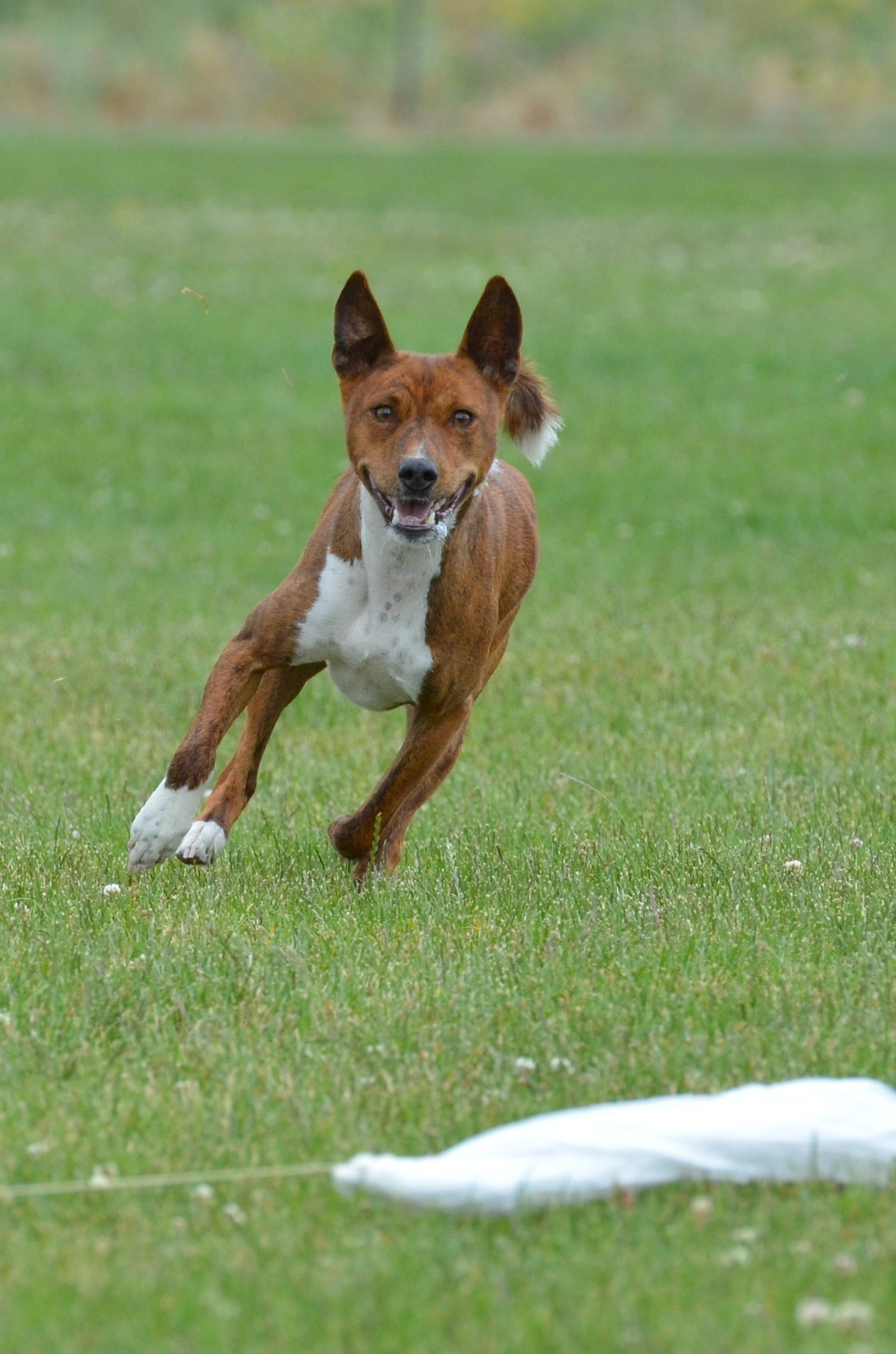FANCONI SYNDROME (RENAL TUBULAR DYSFUNCTION)
We have a DIRECT GENE TEST - September 12, 2011! Read the lastest updates at www.basenji.org
It is typically late onset (age 3 to 5 and older) and some believe that it is caused by a "Late Acting Recessive Lethal Gene". There is no cure for Fanconi, but there is a Fanconi Management Protocol, developed by Dr Steve Gonto. It is important that Fanconi is diagnosed early and that you act quickly because the sooner the syndrome is caught and the supplementation starts, the better chance your Basenji has. There are a number of Basenjis living a long and good life because of Dr. Gonto and his Fanconi Protocol. Symptoms include frequent drinking, frequent urination, dehydration, weight loss, poor hair coat, and bone pain. ALL BASENJI owners should strip test their Basenji at least once a month using a Glucose test Strip for sugar in the urine. If found, see your Vet immediately for further tests and be sure that he/she has a copy of the Fanconi Protocol. It your Vet is not familiar with Fanconi, Dr. Gonto is available for consultation. It is important Blood Gases are done as soon as possible after your Basenji has been diagnosed so the correct supplements can be given. Blood Gases are usually repeated every six months. If you find that your Basenji has Fanconi, be sure that you inform the breeder.
EYE ABNORMALITIES
PPM (Persistent Pupillary Membrane)
Membrane covering the eye during development. Usually disappears shortly before birth but sometimes a part of the membrane remains and can be seen over some part of the pupil. This is not a life-threatening problem, as many Basenjis have 1 or 2 stands of PPM connecting Iris to Iris. If the PPM is covering more of the eye, this is a concern to breeders, but will not effect the quality of life for the Basenji and visual impairment due to PPM is just about unheard of.
PRA (Progressive Retinal Atrophy)
UPDATE REGARDING DNA TESTING FOR PRA - MARCH 18, 2013 - DNA cheek swab test for the recessive gene that is responsible for 50% of PRA in Basenjis, NOW available at www.offa.org. For mroe information about PRA testing go to www. basenji.org
A serious eye problem in our beed as it will cause a dog to go blind. As with Fanconi, PRA is late onset, usually after the age of 5 years. It is recommended by BCOA and BCONC that all Basenjis used for breeding be tested for PRA before breeding.
HD (Hip Dysplasia)
Not as big a problem in Basenjis as it is with other breeds. After a few Basenjis were diagnosed, breeders began to OFA all their Basenjis. Both the Sire and Dam should be OFA'ed before breeding to insure that this problem remains a minor one in our breed.
HA (Hemolytic Anemia)
Since we have a genetic test for HA there is no reason that a Basenji should ever suffer from Hereditary Hemolytic Anemia.
ISPID (Malabsorption)
Typical symptom of ISPID is diarrhea, along with prolonged loss of appetite and weight loss. The disease appears to affect multiple organ systems including skin, liver, endocrine system, immune system and gastrointestinal tract.
Thyroid
The Basenji thyroid functions a bit differently then other breeds. The Basenji has a more active thyroid than other breeds and uses up the hormones produced by the thyroid much more rapidly then other breeds. Thyroid should be checked once a year after the age of two. Regular blood tests do not do a full thyroid screening and usually need to be sent out to one of a handful of labs. This can be controlled very easily by medication.

